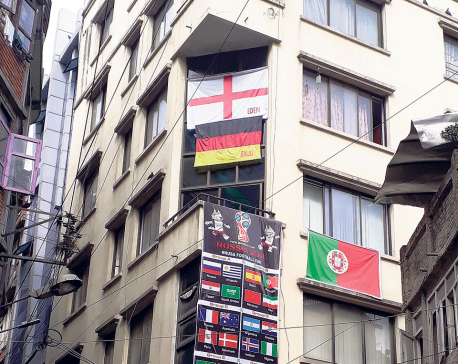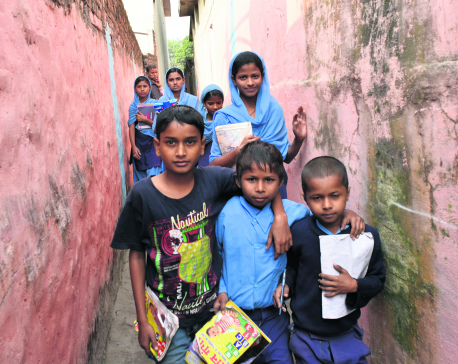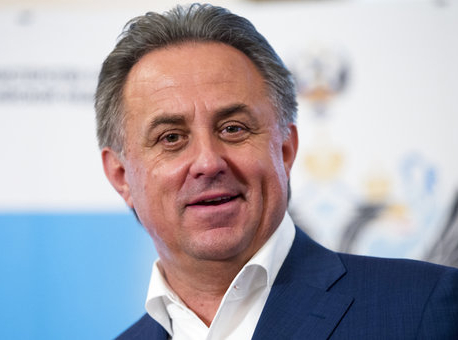
OR
Nepali debaters head to Stuttgart for World Schools Debating Championship
Published On: July 16, 2016 10:35 AM NPT By: Republica | @RepublicaNepal

KATHMANDU, July 15: It is after school hours at the Rato Bangla School. Students are rushing around the basketball court dressed down in their sports attire. But in a secluded classroom somewhere, study desks are shuffled around and arranged in a way so as to create a practice space for young student debaters, who will represent Nepal in the World Schools Debating Championship (WSDC) that is going to take place in Stuttgart, Germany from July 19 to July 29.
The team of Simran Thapa, Abhaya Gauchan and Avash Byanjankar is up against a practice team made up of their own friends. The group debate is about whether or not people should donate their wealth for poverty alleviation after they’ve fulfilled their basic needs.
All three of them look experienced in the etiquettes of the parliamentary form of debating, where one team debates acting as the government side while the other puts its idea as the opposition party.
The debaters have sharpened their ears in such a way that any fumbles or contradictions from the oppositional speaker hardly go unnoticed. To an outsider, they may look like ordinary teens but as you see them taking notes or holding up a hand to object the viewpoints of their opponents, your attention is fixed at the level of analysis they are producing on the topic of discussion. And when it’s turn for them to speak, they don’t disappoint. They guide their knack for critical arguments in rhythm to their swaying hand movements.
As Simran and her group members are busy tackling the practice team, Alaukik Pant and Aakash Pant are each seated at one corner of the room, taking notes of their own. They will also be in the five member Nepali debate team along with Simran, Abhaya and Avash that’s heading to Germany. The debaters are all high school students from Rato Bangla School, except Avash, who has recently graduated high school from Chelsea International.
“Debate is the engagement of ideas that brings quality to discussions and is more interesting than just regular talking or conversation,” Simran explained when asked why she loves debating.
This will be the fourth time Nepal will be making its appearance at the WSDC tournament. For making it to the international tournament, first a national WSDC tournament should be held. In the past two years, Debate Network Nepal (DNN) has been working as an official organizer for Nepal. DNN had successfully organized the 2nd National WSDC, MahaKumbha this year. And after going through the screening of all the participating debaters in the national competition, they announced the final five over a month ago.
Pradeep Ghimire, the chairman of DNN is keen to see Nepal improving its rank among the 56 competing nations. “This year we have worked hard to take everything according to the right process. We have called international trainers and are grooming our debaters through regular practice sessions and closed camps,” he said.
Rishab Krishna Shrestha, a recent graduate in Sustainable Energy from Imperial College, London and the co-founder of DNN, is currently coaching the team. He’s working with them so that they have inside-out knowledge about the topics they are speaking. “I’m working with the team to help them shape their analysis in a more precise order and implement those ideas in a story-like speech,” Shrestha shared.
In their eight preliminary rounds, four rounds would be impromptu while the rest of the four rounds would have them debating in prepared motions that range from ‘Obama Care’ to ‘Refugee Crises’. Although majority of topics have them talking about issues of the Western world, debaters believe that as Nepalis, this situation weighs more as an advantage than disadvantage for them.
“Yes, we can’t bring nuanced examples to our speech but being brought up in Nepal we can bring a richer perspective than the regular line of thoughts and ideas,” Aakash said.
The five students are financing their own trip to Stuttgart. Including the 580 Euro registration fee, and other expenses regarding air tickets, the students would be spending around Rs 200,000 each.
Attempts were made from DNN to crowd fund the amount and even appeal the government to sponsor the visit. “We had proper paperwork and tried to talk with the government bodies, but things didn’t work out,” Ghimire said.
He believes that because there is no proper realization about debating culture in Nepal, it will take few years for schools and the government to support young debaters and see debate as an activity that harbors the future nation builders. Despite these indifferences, Ghimire sees the self funding situation as a worthwhile investment given the exposure the students are getting from the event.
Abhaya has some similar views. “Our trip to Stuttgart will not only be a personal achievement. We are hopeful that seeing us participate in the big arena, students and schools in Nepal would be encouraged to promote the debating culture in Nepal,” he said.
You May Like This

World Cup fever grips schools
KATHMANDU, June 26: With the advent of the FIFA World Cup 2018 in Russia, the hype for this word-class international tournament... Read More...

In lack of good schools in Siraha, children go to Indian schools
SIRAHA, Dec 11: There are ample of private and community schools in the district. However, many Nepali children go to Indian... Read More...

Russia World Cup head Vitaly Mutko barred from FIFA Council
MOSCOW, March 10: Russia World Cup head Vitaly Mutko has been barred from seeking re-election to FIFA's top decision-making body after... Read More...




Just In
- Health ministry to conduct ‘search and vaccinate’ campaign on May 13
- Indian customs releases trucks carrying Nepali tea, halted across Kakarbhitta
- Silent period for by-election to begin from midnight
- SC issues short-term interim order to govt and TU not to take immediate action against TU legal advisor Khanal
- National consultation workshop advocates to scale up nutrition smart community in Nepal
- Patan High Court issues short-term interim order to halt selection process of NTB’s CEO
- NEPSE inches up 0.15 points; daily turnover increases to Rs 2.53 billion
- Bagmati Govt mandates tri-lingual signboards in offices














Leave A Comment